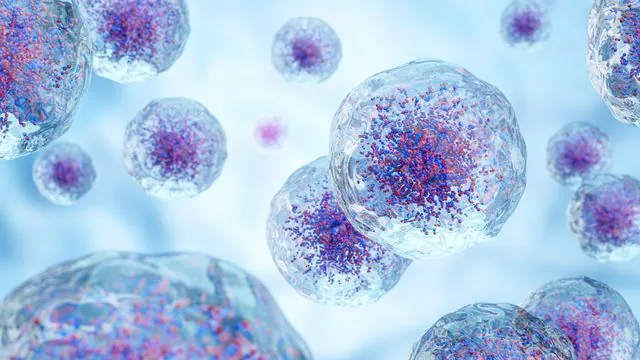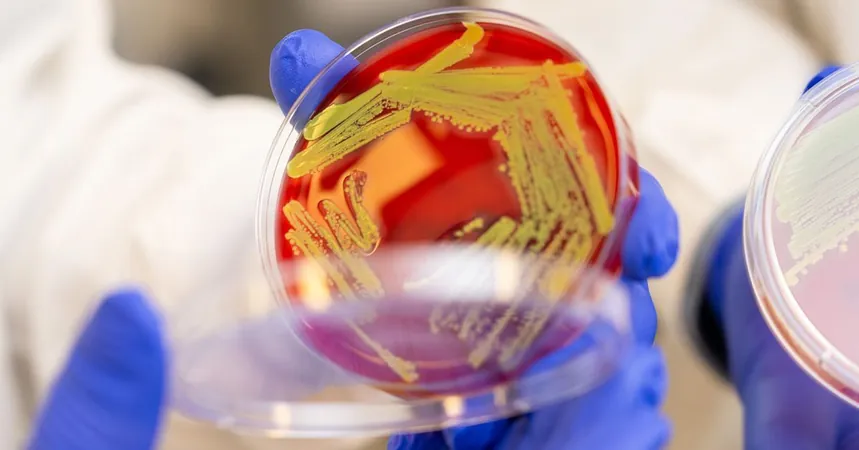
Revolutionary Muscle Stem Cell Therapy Could Transform Lives of Duchenne Patients
2024-12-17
Author: Nur
Revolutionary Muscle Stem Cell Therapy Could Transform Lives of Duchenne Patients
In an exciting scientific breakthrough, researchers at McGill University have made groundbreaking strides in the treatment of Duchenne Muscular Dystrophy (DMD) by discovering a novel drug known as K884, which significantly enhances the muscle repair capabilities of stem cells. Unlike traditional gene therapies that focus on specific genetic mutations, K884 is designed to benefit all DMD patients, regardless of the mutation they carry, thus offering a glimmer of hope for many affected individuals.
A Game Changer for Muscle Repair
Duchenne Muscular Dystrophy, a severe genetic disorder, impacts approximately one in 5,000 boys globally, leading to debilitating muscle degeneration, which often results in wheelchair dependence by adolescence and life-threatening complications in young adulthood. Current therapies primarily aim to slow down muscle degradation but fail to confront the core problem effectively. K884, however, promises to change that by stimulating the muscle stem cells to actively regenerate functional muscle tissue.
"By focusing on muscle repair rather than merely decelerating degeneration, we believe that therapies like K884 can significantly improve the quality of life for DMD patients," stated Natasha Chang, the senior author of the study and Assistant Professor in McGill’s Department of Biochemistry. "Our findings suggest that this drug may not only restore muscle function but also enhance independence for these individuals."
How K884 Works: Precision at Its Core
Originally developed by Kanyr Pharma for cancer and metabolic conditions, K884 has not yet been approved for any specific medical use. This preclinical study represents its first application in muscle stem cells affected by DMD. The researchers meticulously examined DMD-affected muscle stem cells from both humans and mice, observing that K884 successfully blocked specific enzymes, enabling the stem cells to evolve into fully functional muscle fibers.
One of the most promising aspects of K884 is its targeted approach; it specifically aims at muscle cells compromised by DMD without impacting healthy muscle stem cells. “K884 presents itself as a precision therapy, which is a significant advantage over existing gene therapies limited to particular genetic mutations,” Chang explained.
Shifting Perspectives on DMD
The research, published in the journal *Life Science Alliance*, is part of a growing consensus that suggests the underlying problems of DMD extend beyond just the absence of the dystrophin protein. "Historically, DMD has been viewed as a muscle issue primarily due to missing dystrophin," Chang remarked. "However, our results indicate that restoring stem cell function is equally vital for muscle repair."
The team is committed to continuing the evaluation of K884, focusing on its safety and potential long-term impacts, while also exploring other promising compounds that may work synergistically with K884 in future human trials.




 Brasil (PT)
Brasil (PT)
 Canada (EN)
Canada (EN)
 Chile (ES)
Chile (ES)
 España (ES)
España (ES)
 France (FR)
France (FR)
 Hong Kong (EN)
Hong Kong (EN)
 Italia (IT)
Italia (IT)
 日本 (JA)
日本 (JA)
 Magyarország (HU)
Magyarország (HU)
 Norge (NO)
Norge (NO)
 Polska (PL)
Polska (PL)
 Schweiz (DE)
Schweiz (DE)
 Singapore (EN)
Singapore (EN)
 Sverige (SV)
Sverige (SV)
 Suomi (FI)
Suomi (FI)
 Türkiye (TR)
Türkiye (TR)